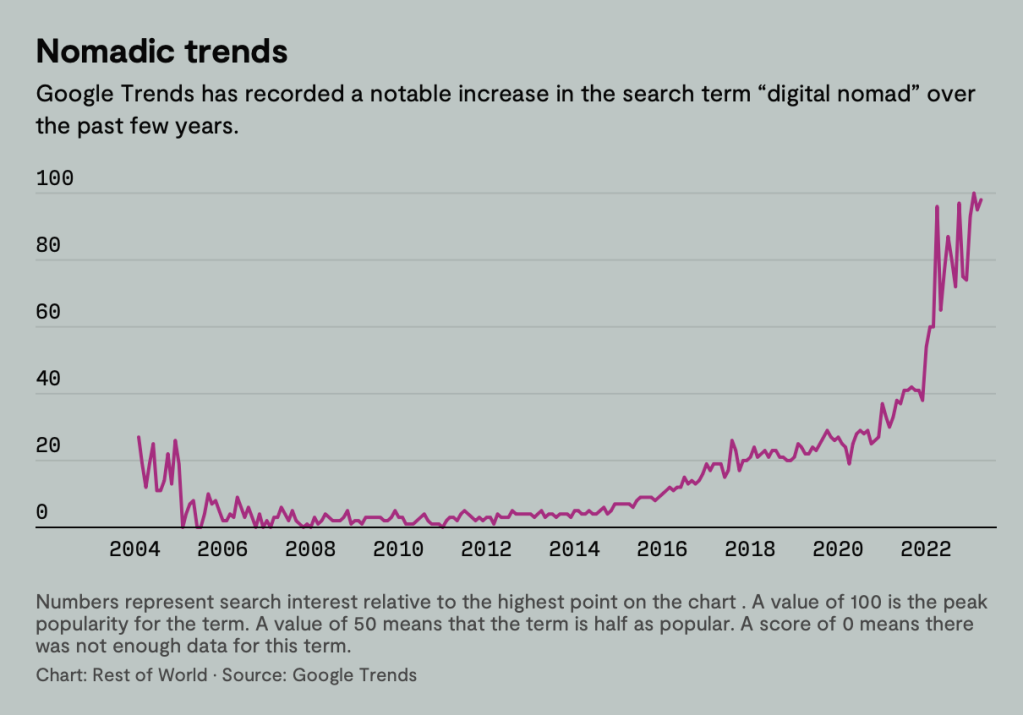
One common way to measure affordability is to look at the cost of things relative to local incomes. But the world is getting increasingly more complicated than this. Here, for example, is an interesting article talking about the “nomadification” of cities such as Medellín.
What this is referring to is digital nomads who might work for and draw a salary from a company in say the US, but who work fully remotely in places like Medellín, Buenos Aires, and Mexico City. It’s like working from home all the time, except home is some exciting city in Latin America.
The appeal of this work arrangement is obvious. You get to both live in an exciting city and you get to arbitrage between a US or other similarly high salary and a place where the cost of living is significantly less.
But the point of the above article is that this can distort a local economy and make locals feel like they’re getting priced out. When you take enough software developers making $150k a year and you drop them into a place where the minimum wage is $350 per month, that additional income starts to have an impact.
Though, many countries seem to think it’s a positive one. Last year, both Portugal and Colombia introduced new digital nomad visas, which presumably means they want more of them. And I certainly think that we will see more and not less of this kind of working.
But in a way, isn’t this really just an extreme form of tourism? I mean, unless these nomadic cities are collecting additional income taxes (or deriving some other benefits), aren’t we just talking about foreigners renting Airbnbs and spending money that is earned and taxed elsewhere?
Chart: Rest of World

Modern day colonization….
LikeLike
Pingback: Canada’s tech talent strategy – BRANDON DONNELLY